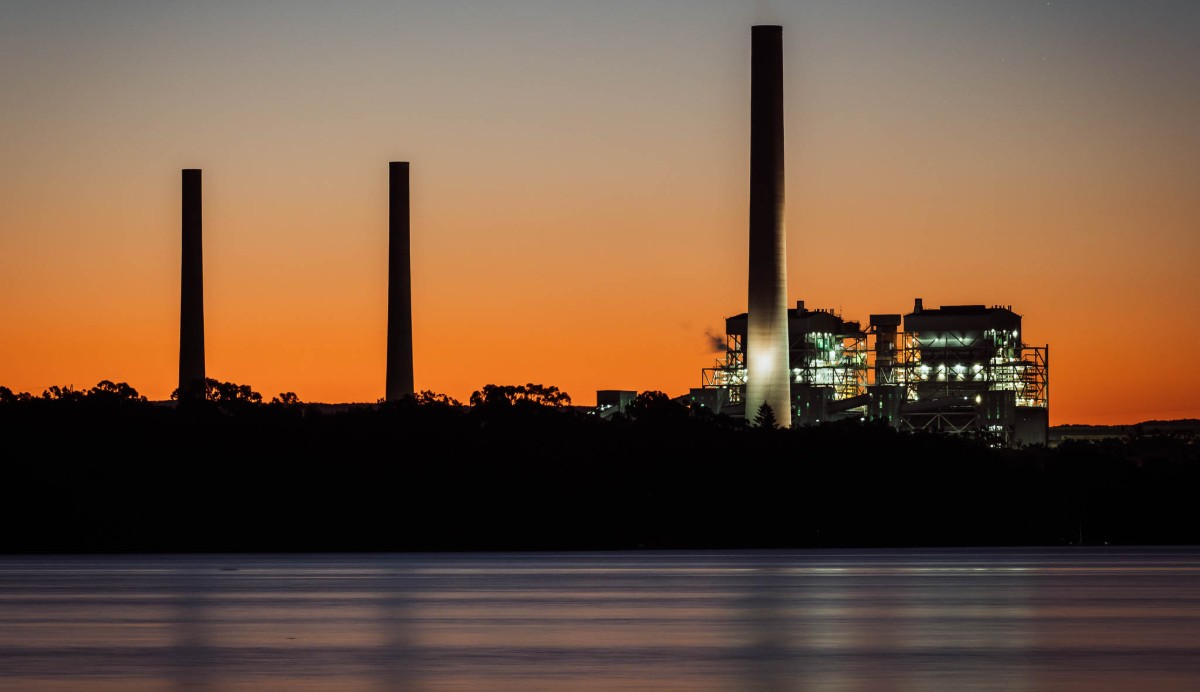London has declared a climate emergency. In March, over a million young people around the world took part in school strikes against climate action. Yet governments and corporations maintain a message of "business as usual". In this piece, Christopher Wright examines how big business controls the climate debate.
Climate change has become the ever-present reality of human experience. We see it daily in our news feeds; whether it’s the current record-breaking heatwave hitting Europe, the record-breaking hurricanes that battered the US last year, the huge wildfires that burned through California, or in Australia, the death of half of the Great Barrier Reef in back-to-back coral bleaching events.
However, while there is a clear scientific consensus that the world is on track for global warming of 4 degrees Celsius this century (threatening the viability of human civilization), our political and corporate masters double down on the fossil fuel bet, transforming perhaps the greatest threat to life on this planet into “business as usual”. This raises the question, why would a technologically advanced society choose to destroy itself?
Risk and opportunity
Over the last decade, I’ve sought to answer this question by exploring how global corporations have contributed to the climate crisis. With my colleague Daniel Nyberg, we have explored how businesses have framed climate change as a “risk” and “opportunity”, sought to shape climate politics, as well as justify their activities in the face of environmental critique.
In our book, Climate Change, Capitalism and Corporations, we argue that global capitalism is locked within a process of “creative self-destruction”. By this we mean our economies are reliant upon ever more ingenious ways of exploiting Earth’s fossil fuel reserves and consuming the planet’s life-support systems. This is evident in the rush by the world’s largest companies to develop new sources of fossil fuels such as deep-water and Arctic oil drilling, tar-sands processing, new mega-coalmines, and the “fracking” of shale and coal-seam gas.
Of course, a key question is how corporations are able to continue such destructive activity despite the disastrous consequences for human society? We argue that corporations and their spokespeople are able to achieve this by incorporating criticism and reinventing the daily ritual of “business as usual” as a perfectly normal and sound process.
Green capitalism and consumption
For instance, through the narrative of “green” capitalism, corporations and markets are portrayed as the only means of responding to the climate crisis. As business tycoon Richard Branson has proclaimed “our only option to stop climate change is for industry to make money from it.” Many companies have established new practices to improve their eco-efficiency, green their supply chains, produce new green products and services, and market their environmental worthiness. This sparkling image of business sustainability falsely promises no conflicts and no trade-offs; that they can address climate change while expanding global consumption. In contrast to the evidence of ever-escalating greenhouse gas emissions, this comforting political myth promises no contradiction between material affluence and environmental well-being. We can have it all and, according to the myth of business “greening”, avoid climate catastrophe!
Moreover, citizens are called upon to enrol in this mythology as active constituents in corporate campaigns, as consumers and “ecopreneurs” in the quest for “green consumption”. We have become the brands we wear, the products we buy; and we are comforted by a future portrayed as “safely” in the hands of the market. The supremacy of “business as usual” thus exacts a powerful grip on our daily thinking and actions. It is a grip strengthened by the promotion of new “green” products, a grip tightened through the establishment of sustainability functions in business and government, and a grip defended with every “offset” we purchase for a flight to a holiday destination.
Of course, this is also a vision that fits well within the dominant economic ideology of our time; neoliberalism. Alternatives, such as state regulation and mandatory restrictions on fossil fuel use, are viewed as harmful and unecessary. This is why the alternative to “business as usual” is much easier to dismiss – what critics characterise as going back to living in caves or a return to the “dark ages”. Indeed, those environmentally aware citizens who argue that we need to leave the vast majority of fossil fuels “in the ground” are demonised as extremists and a threat to national prosperity.
A regulatory solution
However, the reality is that climate change is a systemic problem requiring regulatory solutions. Corporate environmental initiatives, while appealing, lack both this broader impact and are inevitably compromised by the immediate needs of market return. As groups such as Extinction Rebellion have highlighted, we need to visualise an alternative future that goes beyond the comfortable assumptions of corporate self-regulation and “market solutions”, and accepts the need for the dramatic decarbonisation of energy, transport and manufacturing and the mandatory regulation of fossil fuel extraction and use.
To state such conclusions is of course heresy. We like to believe “business as usual” can continue and that nothing radical can or will change. The irony of course is that if we continue as we have, everything will change. Maintaining “business as usual” presents an unimaginable future of large tracts of the Earth rendered uninhabitable, the collapse of global food production, mass species extinction, the acidification of the oceans, dramatic sea level rise of many metres, and storms and droughts of growing ferocity. This will be the future we bequeath our children if we fail to wake up from our collective climate denial.
Christopher Wright is Professor of Organisational Studies at the University of Sydney Business School and is the co-author, with Daniel Nyberg, of Climate Change, Capitalism and Corporations: Processes of Creative Self-Destruction. Their article in The Academy of Management Journal explains how corporations translate the grand challenge of climate change into business as usual.
Header image of Vales Point Power Station on Lake Macquarie by Christopher Wright.
Respond



